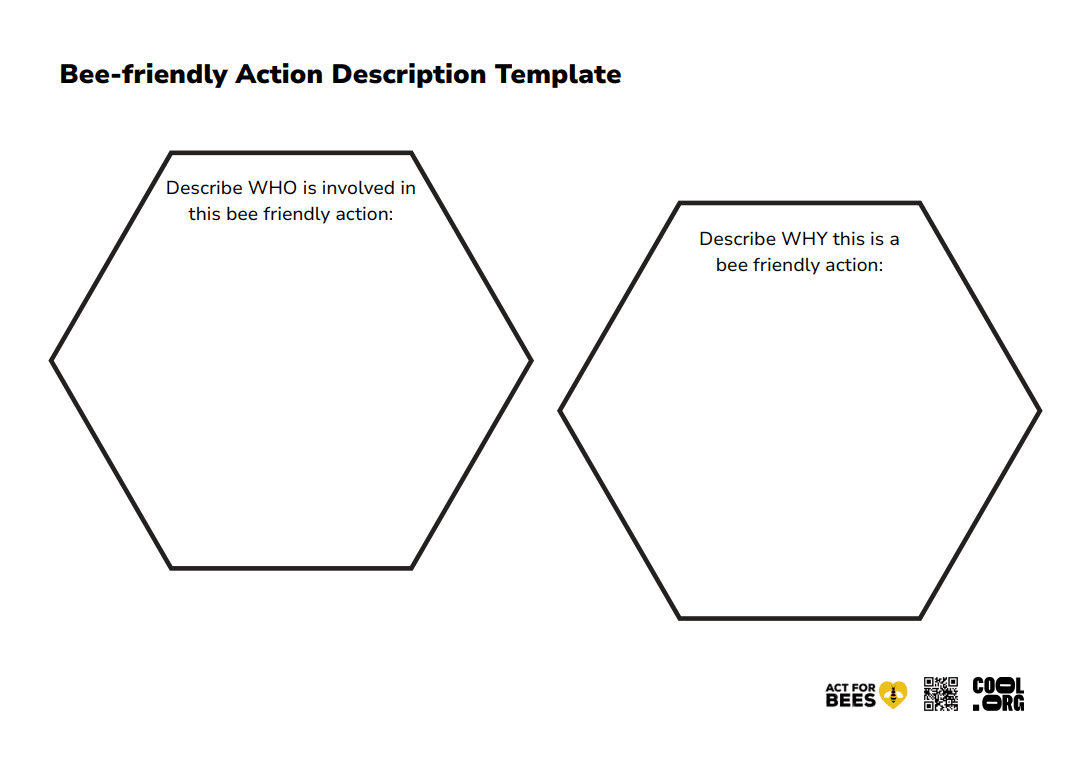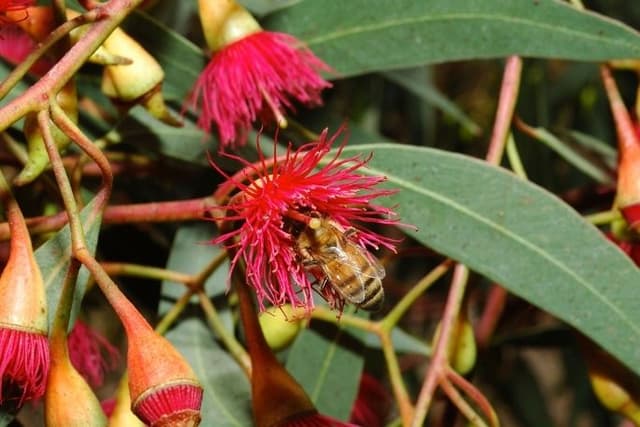
Beeing Helpful
Lesson8 of 10 in this unit
PrimaryYear 5 - 6EnglishMathematicsScienceHumanities and Social SciencesBusiness and EconomicsEnvironmentalBiodiversityConservationSustainabilitySocialSocial Action
Summary
Lesson guides and printables
Lesson Plan
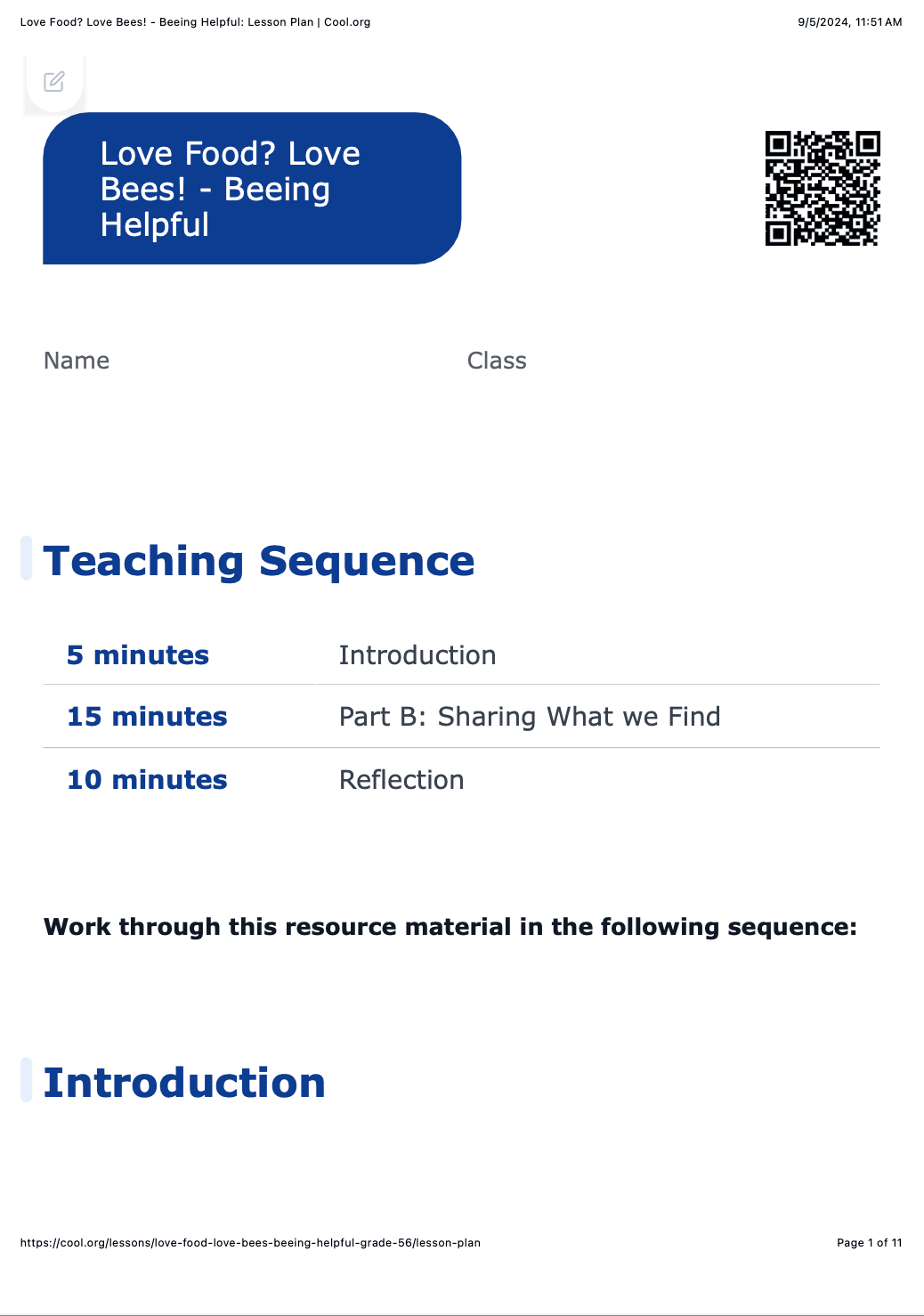
Student Worksheet
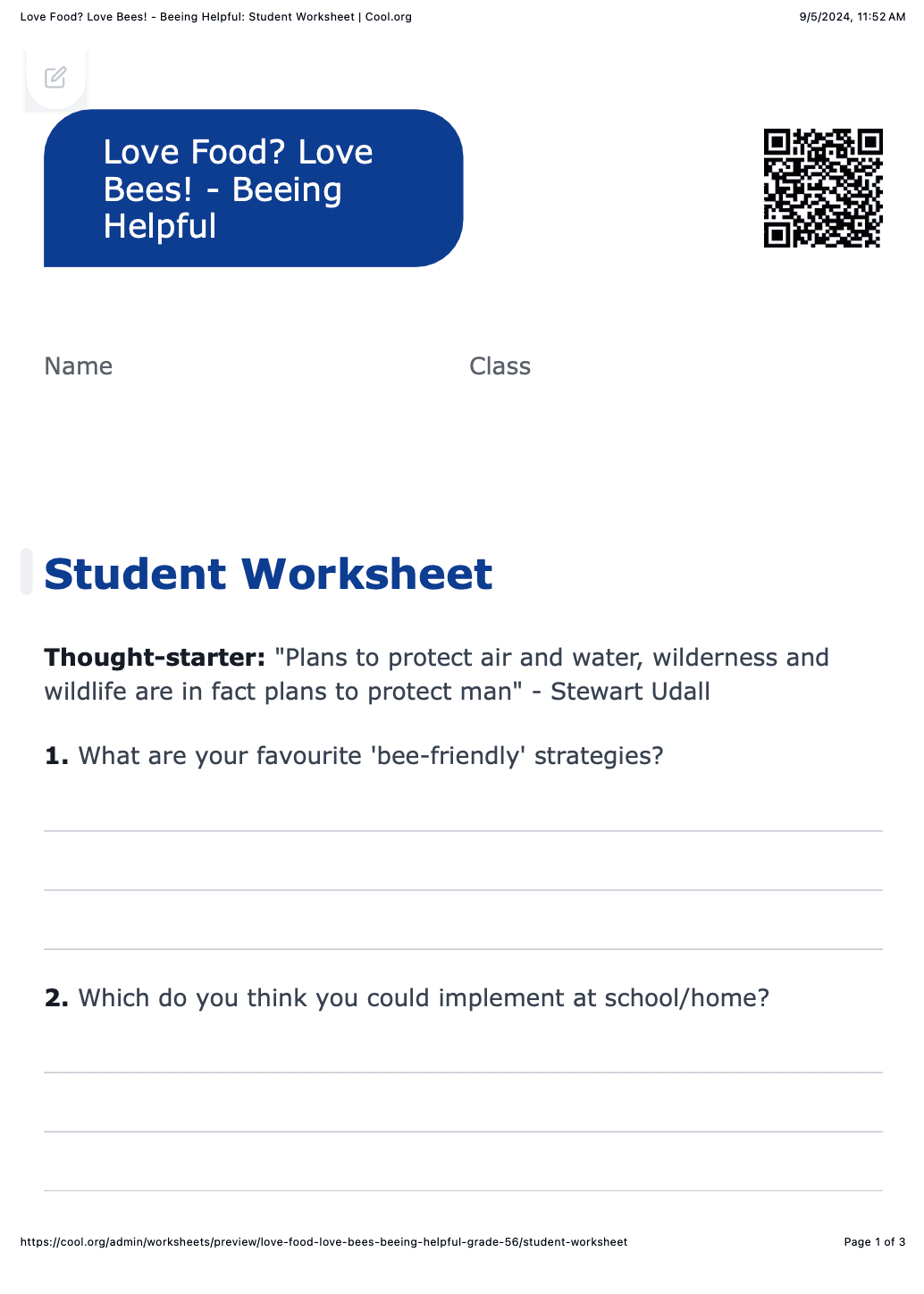
Teacher Content Info
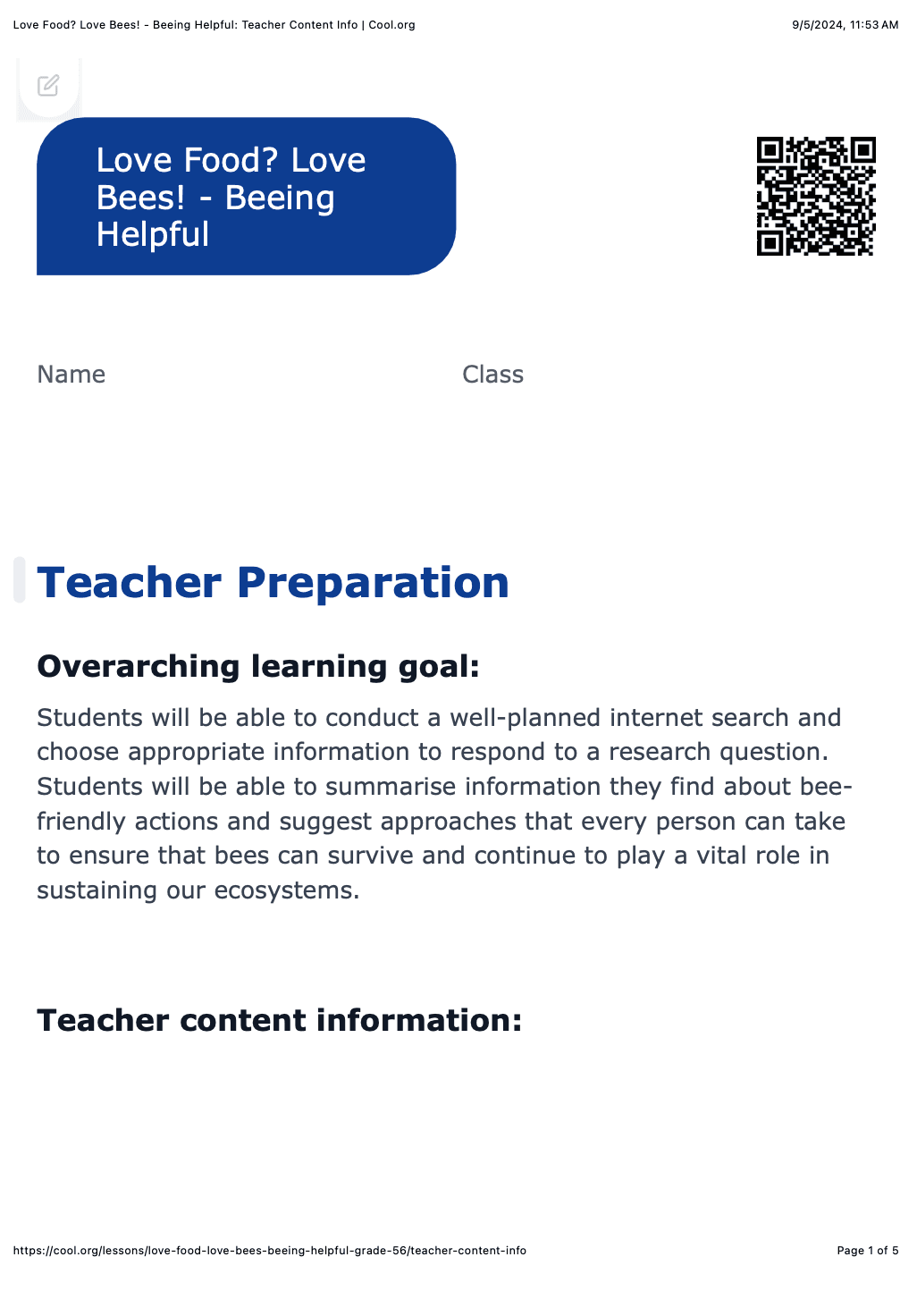
Bee-friendly Action Description Template
